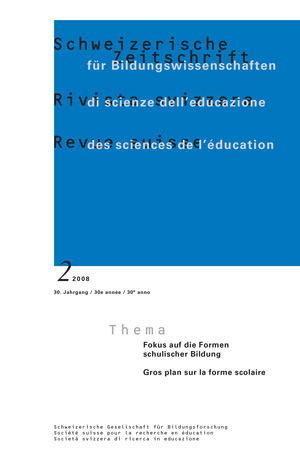The school form beside itself
Abstract
This article emphasizes the interest social sciences might have to consider school, with respect to its own history, as an institution shaping a net of particular social relationships, and giving rise to specific relations to knowledge as well as to power. Because researchers have mainly focused their work on the study of the relations between social classes and school, they often forgot to question school as a relatively independent sphere of activities where specific practices unfold around specific knowledge.
We remind the different historical steps of this “school form of socialization” (forme scolaire de socialisation) in France, from the Ancien Régime colleges on to the relatively unified schools of the 20th century, going through the small schools of Port Royal (1637-1660), the small rural schools of the Ancien Régime, the small urban schools (of Charles Démia and Jean-Baptiste de la Salle), as well as the mutual schools. With this historical reconstruction, the author tends to grasp the school form of socialization with respect to the set of explicit written instructional knowledge matters and to the written objectification of the means required by their learning: i.e. codification of the knowledge to teach and codification of the social learning relationships.
License

This work is licensed under a Creative Commons Attribution 4.0 International License.



